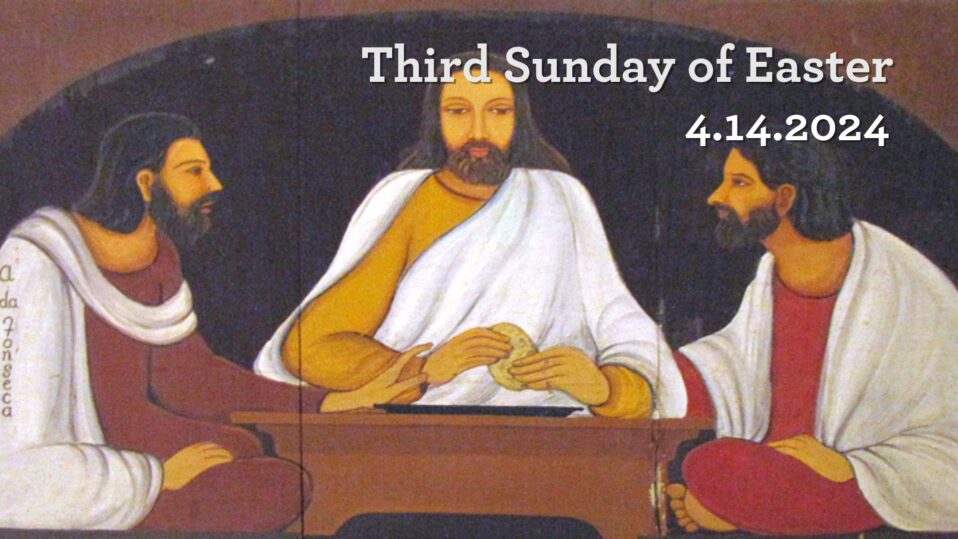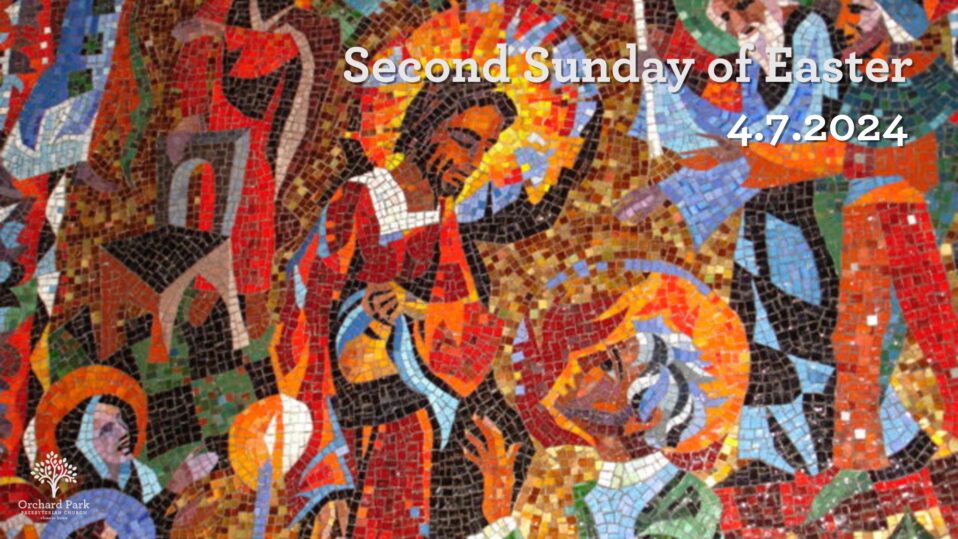This beautiful passage from Paul’s letter to the church in Phillipi begins with one little word. It’s a little word that sets the stage for a vision or a dream for the church. It’s a little word that infers both hope and expectation. The word is “If” If then there is any encouragement in Christ, any consolation from love, any sharing in the Spirit, any compassion and sympathy, make my joy complete: be of the same mind, having the same love, being in full accord and of one mind. The little word is the word that is the basis for the argument, it’s the assumption we believe to be true. For example, if we believe that all of men are made equal…what re the the values we live by? If we believe that we are all children of God, how should we treat people? If we believe in the love of Christ and the sharing of his Spirit, compassion, and empathy, then, Paul says, this is how we should live and be in the world. Before you get the instructions of how to live, you have to believe in the if. And if you do believe those things then you can move forward in being like him, by living in such a way that we have the same mind, the same love as Jesus himself. Do you see the leap Paul is making? If this is true, then this is what you should be and do. Paul says have the same mind that was in Christ, to imitate him. So, if you believe in Jesus, then you must be an imitator of him. There’s a difference between an imitator and an impersonator. An impersonator pretends to be someone they are not. An imitator adopts the attitudes and behaviors of the one being imitated. Who are people you imitate either subconsciously or consciously? Who are the people that imitate you? We imitate people through our habits and our behavior, even our biases and our attitudes. I knock on wood, or sold object is next to me every time someone says something we don’t want to happen. I do that because my mom does that. Do I think knocking on wood will keep the bad thing from happening? No. But I’m not going to take a chance and be wrong. Paul sets forth a vision in this two-stanza hymn that stands as stands as one of the earliest creeds, or statements of belief, of the Christian church. He is
outlining what it means to be Christian, and the appeal is this: “Think the way Jesus thinks,” he says. “And this is the way Jesus thinks: first of all, he becomes a slave. Then he makes himself subject to an untimely death. And, worse even than that, he allows himself to be put to death on a cross.” To be a slave is to have all your freedom taken away, to undergo a punishing and unrewarded existence, to obey a master for whom you likely have little respect and who doubtless treats you with contempt, and to assume the lowest social status of all. To face death is to become subject to the end of consciousness, the height of fear and total loss of control. To undergo death on a cross is to experience the ultimate in physical pain and social shame, to undergo both agony and ridicule at the same time. Paul puts these three aspects of Jesus’ example together and calls them “humility.” Paul’s argument is if Christ could humble himself to such a degree, shouldn’t his followers imitate that same humility? If Christ gave up all his power to become obedient, shouldn’t we follow that example? And if we do, will we not also be raised up like Christ, to be one with the Father? C. S. Lewis, in a wonderful place in Mere Christianity says, “The Church exists for nothing else but to draw men into Christ, to make them little Christs—”“If they are not doing that, all the cathedrals, clergy, missions, sermons, even the Bible itself, are simply a waste of time. God became Man for no other purpose. It is even doubtful, you know, whether the whole universe was created for any other purpose.” What’s the outcome? Why should we imitate Christ? Because the more you are like Jesus, the more you experience ultimate joy. He knows how to live a full, flourishing, human life. If you want the greatest possible joy as a human being, you’re going to find it in being like Jesus and following him. Remember that joy is not the same as happiness. The outcome of imitating Jesus is not happiness as our society defines it, it’s not material possessions or professional success. Joy is not something you consume, as much as marketers want to convince you otherwise. No, joy is inside you, it’s the light in your soul, the bubbling up of laughter as you watch leaves spin as they fall to the ground, it’s the sweet old dog who welcomes you home, it’s the sound of children in pretending in
imagination land, it’s the cheer from the crowd for the runner who comes in first and last. It’s the beauty of communion where young and old come forward to receive symbols of grace not deserved by freely given. That’s Joy. And it is what we experience when we imitate if we imitate Christ. To imitate Christ means to practice humility. You practice humility by facing your own slavery, and so become free like no one has ever been free before. You practice humility by facing your own death, and so live like no one has ever lived before. You practice humility by addressing your pain and shame, and so dismantle fear like no one has ever done before. This is not something we can do on our own. It’s why the church was created. Imagine a church, a sacred community, where everyone strove to imitate to Christ, taking on the mantle of humility and love. This requires vulnerability, humility, and grace. A church’s purpose is not to be the most prestigious or popular, rather the purpose of the church is to imitate to Christ. To practice humility and authenticity that leads to joy. The church is a building of human beings trying to imitate Jesus. On some days we write in the sand, on other days we cry over the death of friend, on other days we welcome a child into the arms of the church, on other days we break bread together. Some days are joyful, some days are mournful. All days are in the humility and the hope of the cross. Fred Cradock tells this story: A child falls down and skins a knee or elbow and comes running to mother. The mother picks up the child and says—in the oldest myth in the world— “Let me kiss it and make it well.” . . . She picks up the child, kisses the skinned place, holds the child in her lap, and all is well. Did her kiss make it well? No. It was ten minutes in her lap. Just sit in the lap of love and see the mother crying. “Mother, why are you crying? I’m the one who hurt my elbow.” “Because you hurt,” the mother says, “I hurt.” That does more for the child than all the bandages and medicine in the world, just sitting in her lap.” “What is the cross?” Craddock asks. “Can I say it this way? It is to sit for a few minutes in the lap of God, who hurts because you hurt” (Cherry Log Sermons: Why the Cross).
To imitate Christ is see in others what Christ sees them. To imitate Christ is to suffer with others as Christ suffers with them. When we take communion, we are imitating Christ and the disciples on day that would end badly and only get worse but would result in an outcome of great joy and exaltation. When we take communion, we own up to our brokenness and sinfulness and receive grace and forgiveness. When we take communion, we come forward as a community an individual receive body of Christ and the cup of salvation. The Table becomes a place where all are welcome, no one is excluded from the joyful feast. Just imagine what if. What if we lived in such a way as to “do nothing from selfish ambition . . . to look not to your own interests but to the interests of others . . . to have the mind of Christ.” That is a powerful dream—powerful enough to effect change, in our lives, in the institutions we serve, in the world. “Where there is no vision, the people perish,” the Bible says. That is true for nations, churches, and individuals. “Have the same mind in you that is in Christ Jesus,” the Bible says. “The one who gives life away for my sake will find it,” Jesus said. Amen. Rev. Dr. Shelly Wood



